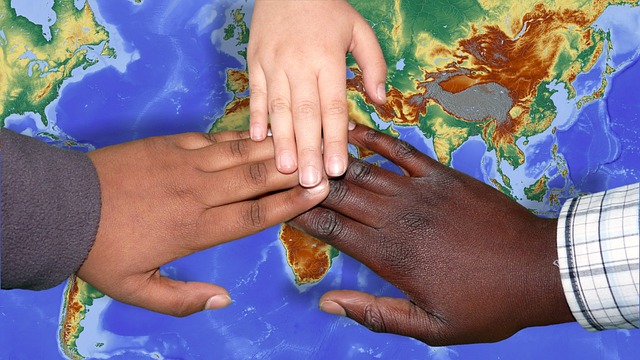
Mental health research for Africans in the diaspora is an important topic that deserves more attention and support.
According to one study, qualitative mental health research among Africans in the diaspora can be daunting due to the stigma associated with mental illness, fear of losing status or respect, and mistrust of the health care system. Therefore, cultural sensitivity and confidentiality are required when working with this population. Some challenges Africans in the diaspora face include isolation, stress, discrimination, trauma, and acculturation. There are also very few African mental health professionals in the diaspora who can provide culturally appropriate services. However, some initiatives aim to break the stigma of mental illness in the African community, such as Africans for Mental Health (AFMH), which focuses on education, advocacy, policy engagement, mentorship, referrals and support, public awareness, and research.
Challenges in mental health research for Africans in the diaspora
Conducting mental health research with African diaspora populations presents unique challenges due to various factors. Firstly, the stigma associated with mental illness in many African cultures makes recruiting participants for research studies difficult. Secondly, survey researchers may face challenges when attempting to generalize findings from household samples to the larger African American population. Thirdly, Black and African American communities hold beliefs related to stigma, psychological openness, and help-seeking, affecting their coping behaviours. Finally, racial/ethnic, gender, and sexual minorities often suffer from poor mental health outcomes due to multiple factors, including the inaccessibility of high-quality mental health care. Therefore, it is essential to address these challenges and work towards improving mental health outcomes for African diaspora populations through culturally sensitive research and interventions.
Opportunities in mental health research for Africans in the diaspora:
Discussion of recent advances and innovations in mental health research that may benefit African diaspora populations
Recent advances and innovations in mental health research can potentially benefit African diaspora populations. The National Institute of Mental Health (NIMH) has released its Strategic Plan for Research, which provides a framework for advancing research priorities that support the understanding and treating mental illnesses through basic and clinical research, paving the way for prevention and recovery. Over the past 12 months, models of the social and economic impacts of COVID-19 on mental health have been developed that simulate trajectories of psychological distress, mental health service waiting times, mental health-related hospital presentations, and suicide over the next five years. Additionally, organizations such as SAMHSA’s Minority Fellowship Program (MFP) aim to improve behavioural healthcare outcomes for racial and ethnic populations by increasing the number of racial and ethnic minorities in the behavioral health workforce. These advances and innovations can help address the unique challenges faced in conducting mental health research with African diaspora populations and improve mental health outcomes for these communities.
Examples of promising opportunities, such as community-based participatory research, teletherapy, and culturally adapted interventions
Mental health research for African diaspora populations faces numerous challenges, such as stigma, confidentiality, trust, and respect. However, promising opportunities exist to address these issues and improve mental health outcomes. This article will discuss three potential areas of focus for mental health research: community-based participatory research (CBPR), teletherapy, and culturally adapted interventions.
CBPR is an approach that involves collaboration between researchers and community members to explore and understand the perspectives and needs of the community. This approach can help address the ethical and cultural challenges of conducting mental health research in rural African settings. CBPR can also help adapt mental health interventions to the specific needs and preferences of African American emerging adults, who face multiple stressors and barriers to accessing mental health care.
Teletherapy is the delivery of mental health services via telephone or internet-based platforms. Teletherapy can help overcome barriers to accessing mental health care for African diaspora populations, such as distance, cost, stigma, and lack of culturally competent providers. This method can also provide flexibility, convenience, and privacy for clients who prefer online communication over face-to-face interaction. In addition, teletherapy is effective for treating various mental health conditions, such as depression, anxiety, post-traumatic stress disorder, and substance use disorders.
Culturally adapted interventions are mental health interventions that are modified to fit the cultural values, beliefs, norms, and practices of a specific group or population. These interventions can help enhance mental health interventions’ relevance, acceptability, and effectiveness for African diaspora populations. Culturally adapted interventions can involve various strategies, such as using culturally appropriate language and metaphors, incorporating cultural concepts and symbols, addressing cultural issues and concerns, and fascinating cultural brokers or mediators. Culturally adapted interventions have been shown to improve mental health outcomes for various African diaspora populations, such as African refugees in Australia, African immigrants in Canada, and African Americans in the US. By addressing these populations’ unique challenges and needs, mental health research can help reduce the burden of mental illness and promote better health outcomes for African diaspora communities.
Conclusion and future directions
Some suggestions for future research directions and opportunities in mental health research for African diaspora populations are:
Evaluating mental health interventions’ long-term effects and sustainability for African diaspora populations, especially those delivered in low-resource settings or through novel platforms such as teletherapy. There is a need to examine the outcomes and impacts of mental health interventions beyond the immediate post-intervention period and to identify the factors that influence the maintenance and generalization of intervention effects over time and across contexts.
Exploring the intersectionality and diversity of African diaspora populations and how they affect mental health and well-being. There is a need to acknowledge and address African diaspora populations’ multiple and overlapping identities and experiences, such as gender, sexuality, class, religion, ethnicity, nationality, migration status, and generation. There is also a need to recognize and appreciate the heterogeneity and variability of African diaspora populations within and across countries and regions and to avoid homogenizing or essentializing their cultures and perspectives.
Engaging African diaspora populations in mental health research as co-researchers and co-producers of knowledge is necessary. There is a need to involve African diaspora populations in all stages of mental health research, from identifying research questions and priorities to designing and implementing interventions to disseminating and translating findings. There is also a need to value and respect African diaspora populations’ lived experiences, local knowledge, and cultural wisdom and challenge the power imbalances and epistemic injustices that often marginalize their voices and contributions to mental health research.
By: Eric Muhia
Author Image Attribution: Eric Muhia
Find out how our CONSULTANCY can help you with your Content Writing, Digital Marketing and PR requirements HERE.
Check out the latest diaspora, migration and diplomatic related Jobs HERE.
Submit your Press Release / Related Contributions HERE.
RELATED NEWS AND STORIES





